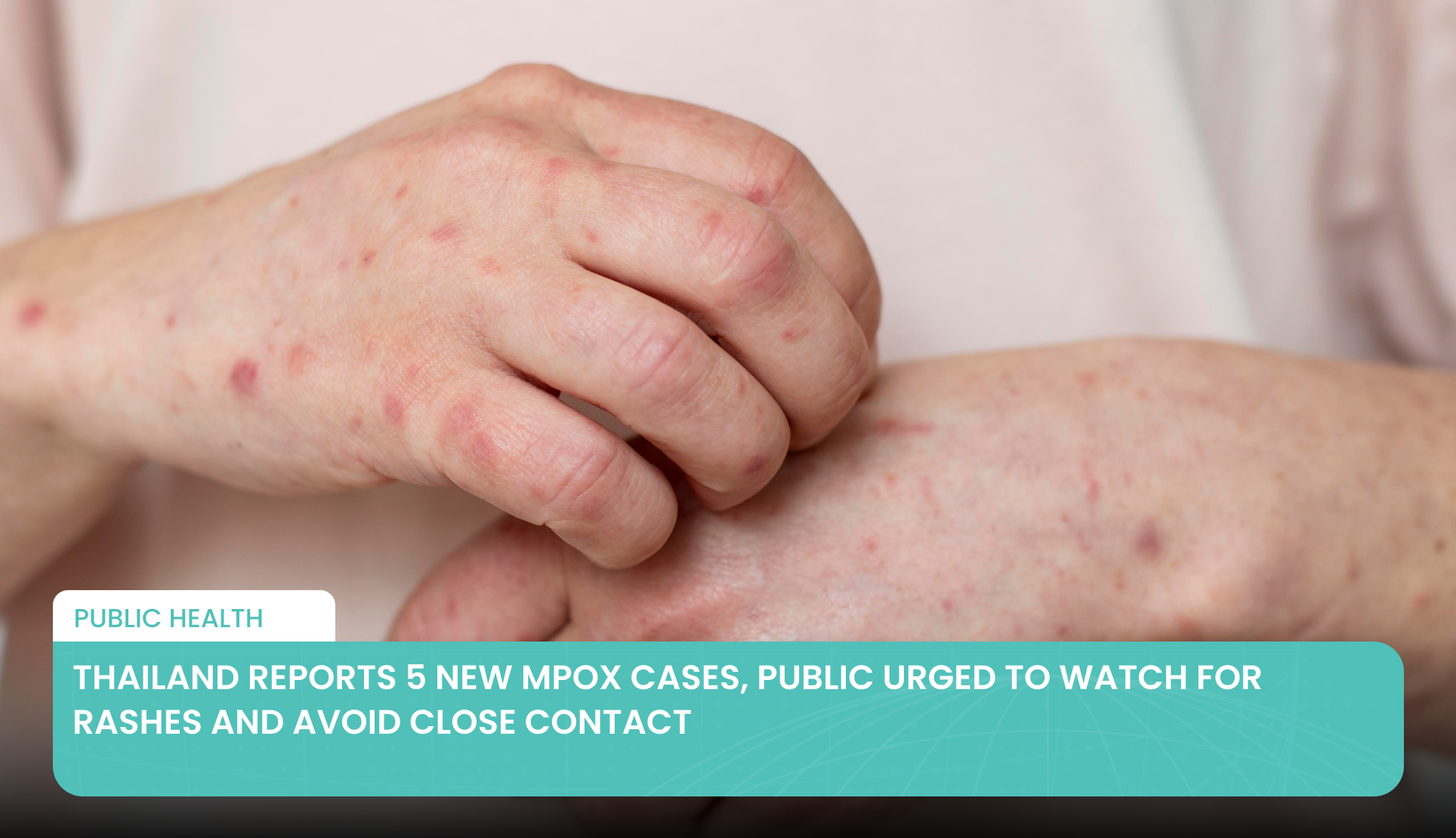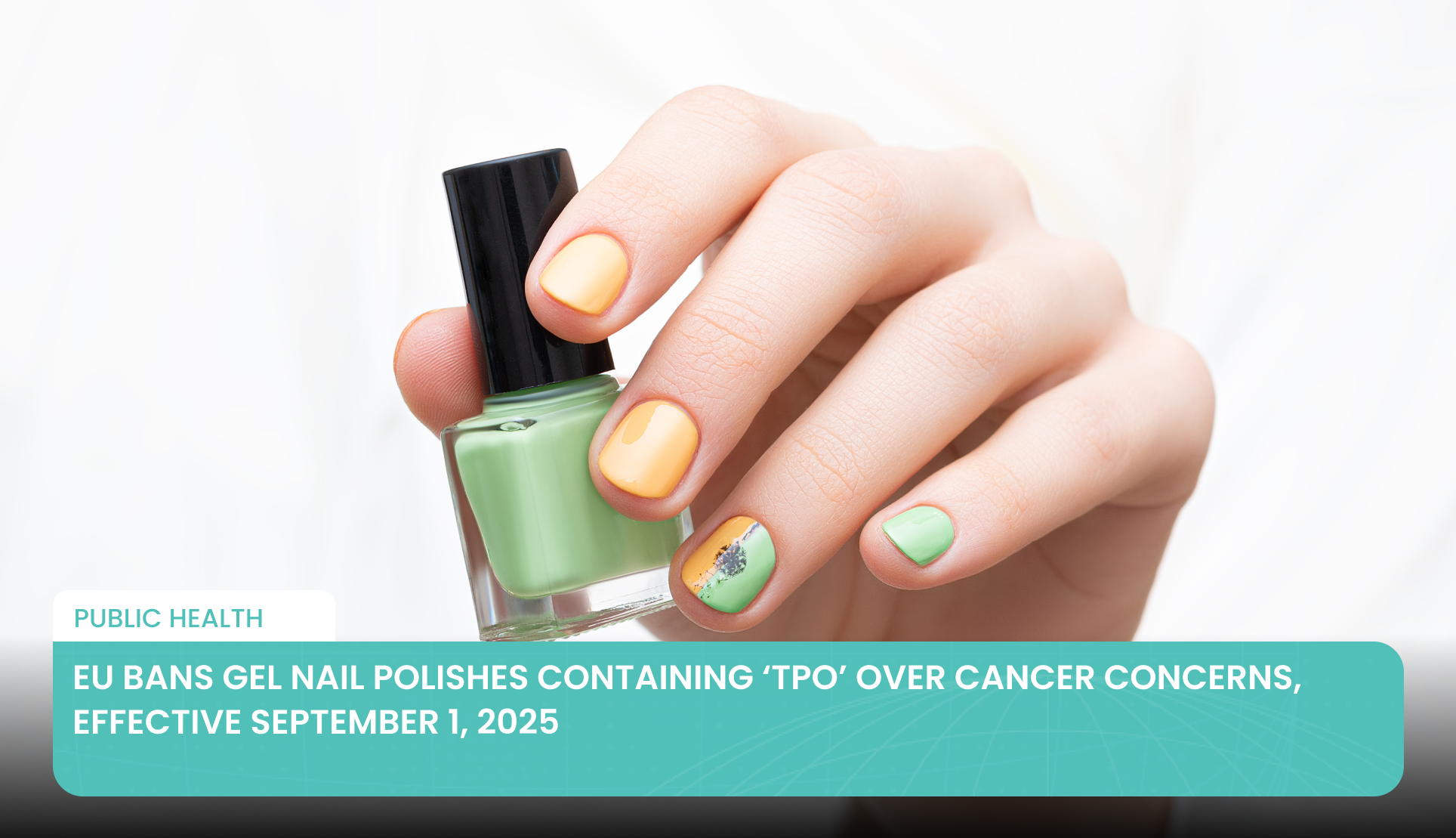
Thailand Reports 5 New Mpox Cases, Public Urged to Watch for Rashes and Avoid Close Contact
The Department of Disease Control (DDC) has reported five new cases of Mpox (monkeypox) in Thailand, while reassuring the public that the disease is treatable and generally not severe. Authorities emphasized the importance of prevention through avoiding close contact with infected individuals.
The Department of Disease Control (DDC) has reported five new cases of Mpox (monkeypox) in Thailand, while reassuring the public that the disease is treatable and generally not severe. Authorities emphasized the importance of prevention through avoiding close contact with infected individuals.
According to the Epidemiology Division, surveillance during week 34 (August 17–23, 2025) identified five new cases: three in Chonburi, and one each in Khon Kaen and Bangkok. Since the beginning of 2025, Thailand has recorded 61 cases with no fatalities. Overall, from the first outbreak in 2022 until now, there have been 933 cumulative cases and 13 deaths.
Most patients were linked to risk factors such as unprotected sex, contact with unfamiliar partners, and close physical contact with infected individuals. Severe illness or fatalities have primarily occurred in patients living with HIV, particularly those not receiving antiretroviral therapy (ARV), which leads to weakened immunity and increased vulnerability to complications.
The five newly confirmed patients are aged between 18 and 39. Their infections were mainly associated with sexual contact. No Clade Ib strain has been detected in the country, and no severe cases or deaths were reported this week. Globally, the World Health Organization (WHO) notes that Mpox continues to be reported, especially in Central and East Africa, as well as some Middle Eastern countries, raising concerns about possible imported cases.
Thailand’s DDC continues to strengthen surveillance by screening travelers from high-risk countries, providing ongoing health education to at-risk groups, and urging healthcare providers and hospitals to report suspected cases immediately.
For treatment, two main approaches are used:
1.Patients with mild symptoms may isolate at home (home isolation) or, if not possible, receive care in hospital.
2.Patients at risk of severe illness or complications may be treated with the antiviral drug Tecovirimat to reduce risks and manage symptoms.
In both cases, patients are advised to remain isolated for about 21 days, or until all rashes and lesions have scabbed and healed completely, to prevent further transmission.
Health officials stressed that Mpox is preventable. Preventive measures include avoiding close contact with confirmed or suspected patients, not sharing personal items, and using condoms during sexual activity. Individuals are also encouraged to monitor for early symptoms such as rashes or blisters in the genital, anal, oral, or other body areas, as well as fever, headaches, swollen lymph nodes, sore throat, or cough. Anyone with such symptoms should seek medical attention promptly and report their exposure history for proper diagnosis and treatment.ฃ
Source:
Articles in this category are written by our editorial team to keep you informed about the latest healthcare and medical tourism news.

